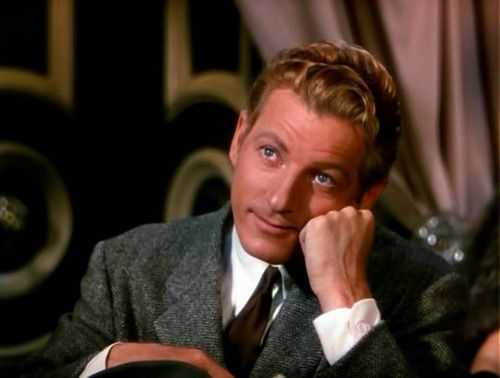top of page
Search
Comedy
Classic Comedy Films from 1930 - 1999


The Great Dictator (1940)
The Great Dictator marks a seismic moment in cinema history: Charlie Chaplin’s first full sound film, and one of the earliest and most daring direct attacks on Adolf Hitler and fascism — released while the United States was still officially neutral in World War II. A dark political satire and social parable wrapped in comedy, the film is both a bold denunciation of tyranny and a plea for human decency.

Soames Inscker
5 min read


Modern Times (1936)
Modern Times is a masterpiece of satire, physical comedy, and social commentary. Written, directed by, and starring Charlie Chaplin in his final performance as the iconic Little Tramp, the film is both a farewell to the silent film era and a scathing critique of industrialization and capitalism during the Great Depression.

Soames Inscker
5 min read


The Thin Man (1934)
The Thin Man is one of the most influential genre hybrids in cinematic history — a brilliant fusion of screwball comedy, hard-boiled detective fiction, and sophisticated romance.

Soames Inscker
5 min read


Born Yesterday (1950)
Born Yesterday (1950) is a witty, sharply written comedy with a political edge, elevated to classic status by Judy Holliday’s Oscar-winning performance. Adapted from the successful Broadway play by Garson Kanin, the film mixes satire, romance, and social commentary, examining the corrupting influence of money and the transformative power of education and self-respect.

Soames Inscker
4 min read


Indiana Jones and the Last Crusade (1989)
Indiana Jones and the Last Crusade is the third instalment in the iconic Indiana Jones franchise. After the darker and more polarizing Temple of Doom (1984), Spielberg and George Lucas return to the tone of the original Raiders of the Lost Ark (1981) — a mix of action, humour, and mythological adventure.

Soames Inscker
4 min read


The Secret Life of Walter Mitty (1947)
Based (very loosely) on the 1939 short story of the same name by James Thurber, The Secret Life of Walter Mitty was transformed for the screen into a vehicle tailored to the immense talents of comedian, singer, and impressionist Danny Kaye. While Thurber's original story is a brief and dryly ironic portrait of a henpecked man escaping reality through heroic daydreams, the film adaptation expands the narrative into a full-blown Technicolor adventure, romantic comedy, and music

Soames Inscker
4 min read


The Three Musketeers (1973)
Richard Lester’s 1973 adaptation of The Three Musketeers is one of the most energetic, irreverent, and stylish takes on Alexandre Dumas’s classic novel ever put to screen. Blending period-authentic detail with slapstick humour and modern wit, this version offers a refreshing departure from the more stately or romanticized adaptations that preceded it.

Soames Inscker
4 min read


Working Girl (1988)
Working Girl is a sharp, spirited, and empowering film that takes a romantic comedy framework and infuses it with ambition, class struggle, and gender politics. Directed by Mike Nichols, known for his acutely observed character studies (The Graduate, Carnal Knowledge), the film captures the corporate culture of the late 1980s through the lens of an underdog tale.

Soames Inscker
5 min read


The Lost Boys (1987)
The Lost Boys is a stylish, energetic blend of horror and teen comedy that helped redefine the vampire genre for a new generation. Released in 1987 and directed by Joel Schumacher, the film merges punk aesthetics, MTV-era sensibilities, and mythic horror into a uniquely vibrant cinematic cocktail. It took the classic vampire lore and injected it with ‘80s cool, complete with leather jackets, saxophones, motorcycles, and sun-drenched California boardwalks.

Soames Inscker
5 min read


Gremlins (1984)
Gremlins is one of the most iconic and genre-bending films of the 1980s, blending horror, comedy, fantasy, and satire in a unique package that feels both nostalgic and subversive. Directed by Joe Dante and produced by Steven Spielberg, this holiday-set creature feature explores small-town Americana under siege by mischievous monsters born of consumer irresponsibility and magical folklore.

Soames Inscker
5 min read


The Titfield Thunderbolt (1953)
The Titfield Thunderbolt is a whimsical and affectionate British comedy produced by Ealing Studios, best known for their run of clever, character-driven post war satires. Released in 1953 and inspired by the real-life story of villagers in Cambridgeshire who fought to save their branch line (the first to be operated by volunteers), the film celebrates community spirit, individual initiative, and the enduring romance of the railway age.

Soames Inscker
5 min read


Passport to Pimlico (1949)
Passport to Pimlico is one of the standout entries in the golden era of Ealing Studios comedies, a post war British film institution known for its dry wit, ensemble casts, and uniquely British sense of humour. Released in 1949, this film delivers a delightful mix of absurdism, satire, and social commentary, rooted firmly in the trials and tribulations of post war British society.

Soames Inscker
5 min read


Beetlejuice (1988)
Beetlejuice is a madcap gothic comedy that marked a defining moment in the early career of director Tim Burton. Surreal, anarchic, and bursting with visual invention, it’s both a darkly comedic tale of the afterlife and a clever satire of suburban life and modernity.

Soames Inscker
4 min read


9 to 5 (1980)
9 to 5 is a landmark feminist workplace comedy that remains surprisingly relevant more than four decades after its release. Directed by Colin Higgins and starring Jane Fonda, Lily Tomlin, and Dolly Parton (in her first film role), the movie is a sharp, funny, and ultimately empowering satire of corporate America, gender inequality, and female solidarity.

Soames Inscker
4 min read


Lethal Weapon (1987)
Released in 1987, Lethal Weapon didn’t just energize the buddy cop genre—it redefined it. Directed by Richard Donner and written by Shane Black, the film fuses intense action, razor-sharp banter, and surprising emotional depth, all anchored by the now-iconic chemistry between Mel Gibson and Danny Glover. It walks a deft line between gritty cop drama and stylized action spectacle, with undertones of noir, post-Vietnam disillusionment, and dark comedy.

Soames Inscker
4 min read


House on Haunted Hill (1959)
House on Haunted Hill (1959) is a quintessential mid-century B-movie horror film that remains a beloved cult classic. Directed by the showman William Castle, a filmmaker known more for his marketing gimmicks than for cinematic artistry, the film transcends its low-budget roots thanks to an iconic performance by Vincent Price, a memorably creepy setting, and a clever blend of horror and whodunit tropes.

Soames Inscker
4 min read


The Invisible Man (1933)
The Invisible Man (1933), directed by James Whale, is a foundational work of both science fiction and horror cinema. Adapted from H.G. Wells’s 1897 novel, the film was part of Universal Pictures’ ground breaking cycle of horror films in the early 1930s, alongside classics like Dracula (1931), Frankenstein (1931), and The Mummy (1932).

Soames Inscker
4 min read


Harvey (1950)
Harvey (1950) is one of those rare films that feels both timeless and gently magical — a story that balances whimsy with wisdom, offering gentle humour alongside quiet philosophical reflections on identity, reality, and kindness. Adapted from Mary Chase’s Pulitzer Prize-winning play, the film tells the story of Elwood P. Dowd, a mild-mannered man whose best friend is an invisible six-foot-three-and-a-half-inch tall rabbit named Harvey.

Soames Inscker
5 min read


Adam's Rib (1949)
Adam’s Rib is a whip-smart romantic comedy that doubles as a battle-of-the-sexes courtroom drama. Directed by George Cukor and written by married screenwriters Ruth Gordon and Garson Kanin, the film cleverly dissects gender roles, double standards, and marriage dynamics — all while delivering rapid-fire wit and sizzling chemistry between its leads, Spencer Tracy and Katharine Hepburn.

Soames Inscker
5 min read


The Apartment (1960)
Billy Wilder’s 1960 classic The Apartment is one of the crowning achievements of mid-century American cinema. Winner of five Academy Awards — including Best Picture, Best Director, and Best Original Screenplay — it is both a biting corporate satire and a deeply human romantic drama.

Soames Inscker
5 min read
bottom of page


